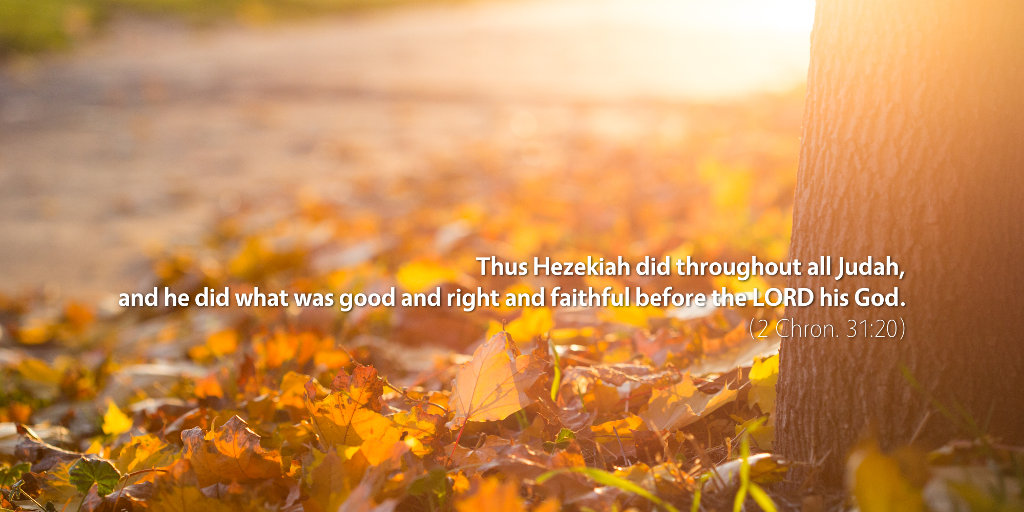Bible Readings for December 26th
2 Chronicles 31 | Revelation 17 | Zechariah 13 | John 16
As we studied the story of King David in 1 Chronicles, one of the main themes (a theme we did not find in the accounts of David in the books of Samuel) had to do with his reorganization of the Levites to serve as singers, musicians, gatekeepers, and treasury officers. In this way, David became a new lawgiver to foreshadow the coming of his own greater Son, the Messiah. For this reason, reading in 2 Chronicles 31 that Hezekiah also reorganizes the priests should surprise us. After a great revival that began with the defective (but wholeheartedly obedient) Passover, as we read yesterday, the people of Judah all head out to break down the pillars, to cut down the Asherim, and to break down the high places and altars throughout Judah, Benjamin, Ephraim, and Manasseh, “until they had destroyed them all” (2 Chron. 31:1). This is not the work of a few zealots, but we read that “all Israel” (2 Chron. 31:1) participates in this cleansing and reformation.
When the people finish cleansing the nation of idolatry, Hezekiah then commands the people who live in Jerusalem to bring in their tithes and contributions to the temple (2 Chron. 31:4), but then word of that command spreads abroad to all God’s people who live outside of Jerusalem as well (2 Chron. 31:5–6). Those people contribute tithes and offerings in abundance, so that the gifts pile up in heaps (2 Chron. 31:7–8). To handle this incredible generosity, Hezekiah commands the Levites to build chambers to store the gifts, and then he assigns Levites to receive, manage, and apportion those offerings to provide for the Levites (2 Chron. 31:11–19; cf. Num. 18). Their hearts are transformed by worship, so the people provide richly for the priests and the Levites who depend upon these contributions for their livelihood.
In part, this story of Hezekiah again gives us a glimpse into who David’s great Son would be—a man who would lead God’s people into wholehearted worship and godly generosity. And furthermore, the narrative of Hezekiah in this chapter is written to cast our eyes beyond him to deepen our anticipation for the coming of Jesus Christ. We should not, however, focus so much on the foreshadowing of this passage so as to miss the link between worship and generosity here. The reformation of worship does not leave these Israelites stern and legalistic, ready to spread a wet blanket on joy anywhere they might find it. Rather, the reformation of worship and joyful, liberal generosity arise from the same source: people who have been transformed by the grace of God. Indeed, the deeper we reflect on the grace of God as demonstrated in Jesus Christ, the deeper we should be transformed toward profound generosity, and pure worship is the fuel of that fire.
Does worship so transform your heart?
Podcast: Play in new window | Download (4.8MB) | Embed
Subscribe: Apple Podcasts | RSS | More

Scripture quotations are from The Holy Bible, English Standard Version copyright © 2001 by Crossway Bibles, a division of Good News Publishers. Used by permission. All rights reserved.


